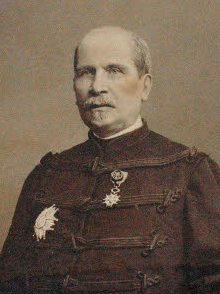
Bernard Edme Victor Etienne Lefranc, French lawyer and politician, moderate republican, was under the French Third Republic Minister of Agriculture and Trade, then Interior Minister.

Pierre Magne was a lawyer and French politician. He was a member of parliament from 1843 to 1848, a senator in the Second French Empire, and a representative and then senator in the French Third Republic. He was Minister of Finance several times.

Adolphe Augustin Marie Billault was a French lawyer and politician who played a leading role in the governments of Napoleon III.
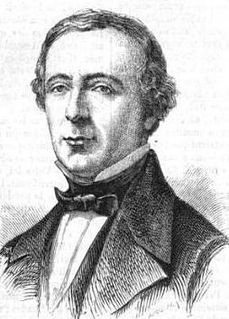
François-Xavier Joseph de Casabianca was a French aristocrat, lawyer and politician who served as Minister of Agriculture and Commerce, Minister of Finance and then President of the Council of State in the government of Louis Napoleon.

Pierre Henri Édouard Bocher was a French politician.

Henri Barbet, or Henry Barbet, was a French industrialist and politician. He owned and ran the family cotton spinning and weaving factory in Rouen, one of the most important in the region. For many years he was mayor of Rouen. He was responsible for building two bridges over the Seine, and for a policy of putting the indigent and insane to work in charitable workshops. He was a deputy for the Seine during the July Monarchy and again during the Second French Empire.

Louis Eugène Bonnet was French doctor and politician who was Senator of Ain from 1876 to 1885.
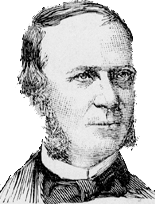
Charles-Hippolyte Ribière was a French lawyer and politician who was Senator of Yonne from 1876 to 1885.

Eugène Jolibois was a French lawyer and politician. He was Bonapartist deputy for Charente-Inférieure from 1876 to 1893.
Michel Etienne Anthelme Théodore Grandperret was a French lawyer and politician. He was a staunch Bonapartist. He served briefly as Minister of Justice and Religious Affairs during the last weeks on the Second French Empire. Later he was a Life Senator from 1877 to his death.

Nicolas Joseph Péraldi was a French notary who was Republican deputy of Corsica from 1881 to 1885, then senator of Corsica from 1885 to 1894 and again from 1909 to 1912.
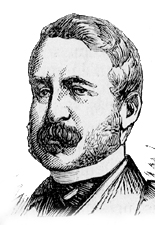
Gaspard Laurent Louis Jacquelot de Chantemerle was a French magistrate and politician who was Senator of Allier from 1876 to 1885.

Oswald Jean-Baptiste Michel Augustin Bouteille was a French lawyer and politician who was a Deputy of Basses-Alpes from 1876 to 1881, and Senator of Basses-Alpes from 1885 to 1893.
Joseph Eugène Michel was a French lawyers and politician who was Representative and then Senator of Basses-Alpes between 1871 and 1995.

Count Joachim Achille Rampon was a French soldier, aristocrat and politician who was deputy for the department of Ardèche from 1837 to 1842, and again from 1871 to 1876, and was Senator of Ardèche from 1876 until his death.

Louis Tirman was a French lawyer and civil servant who was prefect of several departments, Governor General of French Algeria from 1881 to 1891 and then Senator of Ardennes from 1892 until his death in 1899. He believed in consolidating the French presence in Algeria through support of the colons, and the grant of French nationality to the Algerian-born children of Spanish and Italian settlers.

Jules Philippe Louis Albert Grévy was a French lawyer and politician. He represented Doubs in the National Assembly and then the Chamber of Deputies from 1871 to 1880. He was Governor-General of Algeria from 1879 to 1881, and a Senator for Life from 1880 until his death in 1899.
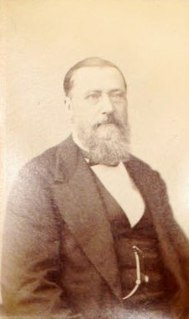
Rémy Jacques was a French lawyer and politician. He represented the department of Oran, French Algeria, in the National Assembly and then the Chamber of Deputies from 1871 to 1882. He was then Senator of Oran from 1882 to 1900.






